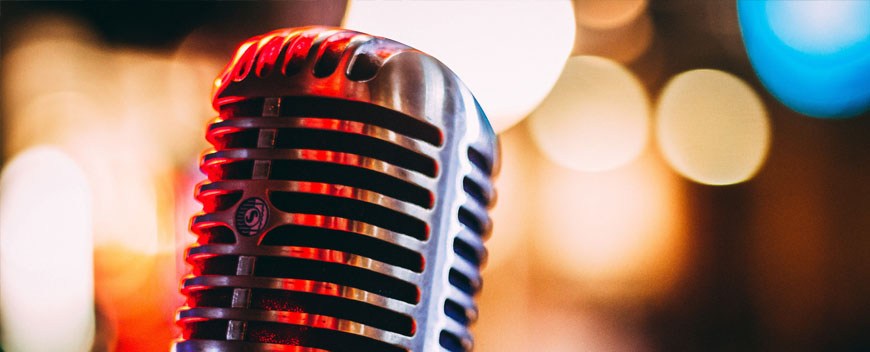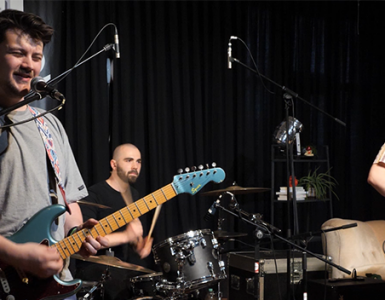On the 18th of May, the Eurovision Song Contest took place in Tel Aviv, Israel. This year’s winner, Duncan Laurence, comes from the Netherlands. His performance to the song Arcade received 492 points.
The song Toy performed by Netta in Lissabon (Portugal), in 2018 brought the Eurovision Song Contest to Israel. For the 64th time the event gathered artists from all over the Europe, this time under the motto Dare to Dream. Women on 5 meters sticks, a copy of Florence and the Machine, industrial rock and a man behind wet glass – those are just some of the examples of performances, which prove how diverse this contest was. It looks like some of the artists took the motto of this edition a bit too serious.
The Eurovision Song Contest has its big lovers who see the event as intercultural exchange of emotions and cultures. However, at the same time, Eurovision is criticised for weak songs, exaggerated performances and voting for the neighbours. All are in some points right, I guess, but one should not forget that alike in the past and currently, some Eurovision songs or artists are becoming worldwide popular, for example Abba (1974), Mans Zelmerlov (2015) and the song If I were sorry (2016).
Nevertheless, what is actually the story of the Eurovision Song Contest?
Marcel Bezencon, a Swiss entrepreneur, suggested the idea of Eurovision Song Contest based on the famous Sanremo Music Festival which is held in Italy. The idea was to create an international TV programme – a song contest – in which European countries will participate. At the same time, it was perceived as a big technological experiment in life broadcasting.
Finally, on 24th May 1956 the first contest was held in Lugano, Switzerland. Seven countries took part, each presenting two songs. It was the only contest in which more than two songs per country were performed. Switzerland won and since 1957 only one song per country is allowed.
And what are the rules?
- Each country taking part in the contest is allowed to sing one song live. Maximum six people performing and a song maximum three minutes in length, not released before 1 September of the year preceding. No live instruments are allowed and no entirely instrumental composition has ever been allowed.
- The song must be original in terms of songwriting and instrumentation.
- Grand Final is limited to 26 songs; they consist of:
– the ‘Big Five’ – German, Italy, Sapin, France, United Kingdom – the largest economic contributors, the host country – the winner of last year competition; 10 qualifiers from semi-final 1 which is held on Tuesday before the Grand Final; 10 qualifiers from semi-final 2 which is held on Thursday before the Grand Final. - Performers must be 16 and older
- The countries can be represented by artists who are not nationals of that country.
- The language. Since the first Contest, the rule concerning the language of the songs was changed a few times. Since 1999 the songs may be performed in any language. As a result, great majority of the songs presented in the Grand Final are partially or completely in English. Free language rule was fully used by Belgium (“Sanomi”) in 2003 and the Netherlands (“O Julissi”) in 2006 who used artificial language especially created for the song.
- After all songs have been performed, each country is asked to give two set of 1 to 8, 10 to 12 points One set is given by five music industry professionals (jury), and the second by the viewers at home who are voting by mobiles (SMS or official app).
- Voting for your own country is prohibited.
- In the Grand Final, the jury and the viewers from all 42 participating countries can vote after the performance of 26 finalists.
- The winner will perform again and take home the glass microphone trophy.
- The contest takes place in a country of the previous year’s winner.
The Eurovision Song Contest is an event which from time to time causes controversies, for instance withdrawal of some countries, participation of countries out of Europe, political background of some songs, etc. This year we had quite a lot of them. It already started last year. Netta, the singer from Israel, after winning said: Next year in Jerusalem. Then, although the final of the Eurovision took place in Tel Aviv this year, Hatari – the band from Iceland – expressed their political opinions by showing Palestinian flags. Thirdly, one of the weakest points of the Final was the performance of Madonna, who celebrated 30 years of the song ‘Little prayer’. What a pity that her voice did not manage a live performance. Lastly, the Eurovision Song Contest 2019 did not avoid technical mistakes either.
Fortunately, there was a performance which saved the event. A special guest from Israel, The Idan Raichel Project showed what valuable music and art are. As Salvador Sobral, the winner of the Eurovision Song Contest in 2017, said Music is not fireworks, music is a feeling. And this is I guess the best tip for the future performances.







I think there’s one thing we can all agree on: #sanmarinowasrobbed!